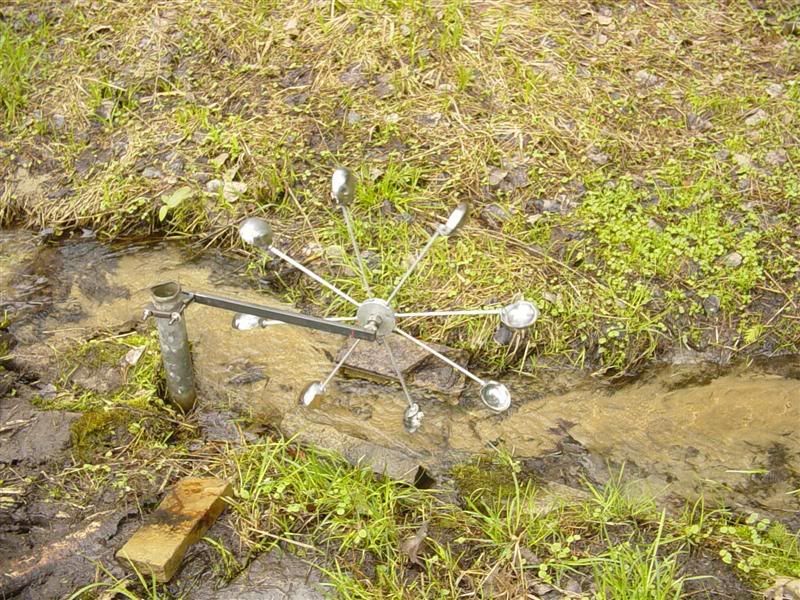rake60
Well-Known Member
- Joined
- Jul 8, 2007
- Messages
- 4,756
- Reaction score
- 125
You all know just how off the wall I can be so this thought should be of no surprise to those
of you who know me.
Oil prices went out of control and did their damage.
Now those prices have dropped like a rock and created a new way to exact damage.
There are 3 basic FREE energy sources.
Solar: Too expensive to be a viable resource with today's technology.
Wind: Unreliable and expensive to install and maintain.
The third is Gravity.
About 200 years ago the water flow of a river or stream was diverted to flow over or under
a wooden paddle wheel that would drive a line shaft in the ceiling of a textile mill, machine shop ,
hammer mill, feed mill, etc.
Today that gravity driven force of falling water directly drives electrical generators.
We can build small compressed air operated engines that will run on 10 PSI of air that generate enough
power to run accessory machines of the same scale.
If the power of falling water was used to operate a compressor, how many turbines could be operated
by the engines it might support?
I told you it was weird thought!
If you've bothered to read it this far, it's not MY fault!
Rick
of you who know me.
Oil prices went out of control and did their damage.
Now those prices have dropped like a rock and created a new way to exact damage.
There are 3 basic FREE energy sources.
Solar: Too expensive to be a viable resource with today's technology.
Wind: Unreliable and expensive to install and maintain.
The third is Gravity.
About 200 years ago the water flow of a river or stream was diverted to flow over or under
a wooden paddle wheel that would drive a line shaft in the ceiling of a textile mill, machine shop ,
hammer mill, feed mill, etc.
Today that gravity driven force of falling water directly drives electrical generators.
We can build small compressed air operated engines that will run on 10 PSI of air that generate enough
power to run accessory machines of the same scale.
If the power of falling water was used to operate a compressor, how many turbines could be operated
by the engines it might support?
I told you it was weird thought!
If you've bothered to read it this far, it's not MY fault!
Rick
































































